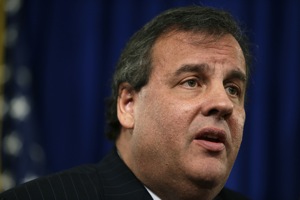WASHINGTON - Despite New Jersey’s open-records law, personal emails at the center of the scandal for New Jersey Gov. Chris Christie nearly remained secret.
Emails disclosed last week show a top Christie aide asked the Port Authority of New York and New Jersey to shut down three lanes on the busy George Washington Bridge, resulting in major backups for days in September. Those emails were leaked to reporters last week, even though one newspaper requested them nearly a month ago only to be told they didn’t exist.
The use of private emails adds Christie’s, a possible Republican presidential candidate in 2016, to a growing list of administrations that use private email accounts and other digital services to conduct official business. In turn, state and federal officials - regardless of political party - have sidestepped public-records laws meant to keep government activities transparent.
The Record of Bergen, N.J., said it filed an open-records request last month asking for emails related to the Port Authority’s decision to close the bridge lanes. The request specifically sought emails between David Wildstein, a Christie-appointed Port Authority official, and employees in the governor’s office.
The newspaper received a response from Christie’s office 10 days later, stating the office “reviewed its records” but did not find any responsive emails. Weeks later, however, emails similar to what The Record asked for were made public after being obtained under subpoena by state Democrats.
It’s unclear why the governor’s office didn’t turn over apparently responsive emails from the Yahoo Mail account of Christie’s former deputy chief of staff, Bridget Anne Kelly. She used the service to send messages to Wildstein, who ordered the bridge lanes closed. Representatives in Christie’s office did not immediately return messages seeking comment Friday.
Public-records laws, which can vary widely from state to state, govern how officials’ documents and correspondence should be stored and released. But those laws largely have been slow to catch up to the digital age.
The result creates a gray area for how state and federal employees can use electronic services, such as personal email accounts and text messages, to conduct business. It also creates murkiness for how those records should be disclosed to the public.
The Associated Press found last year that some of President Barack Obama’s political appointees, including Health and Human Services Secretary Kathleen Sebelius, used secret, unpublished email accounts at work. Officials said the emails are still searchable under the federal Freedom of Information Act.
Christie’s Democratic predecessor, Jon Corzine, had fought to keep secret emails he exchanged with his ex-girlfriend, a former union leader. The state’s highest court ruled in 2009 that he could keep those messages private.
In October 2012, the Alaska Supreme Court said state employees can use private emails but that they must be preserved under records laws. The decision stemmed from former Gov. Sarah Palin’s use of private emails. When Palin was the Republican vice presidential nominee in 2008, journalists fought for and received thousands of personal emails she initially claimed were exempt from disclosure.
On Saturday, New Jersey Assembly Speaker-elect Vincent Prieto said he plans to call his chamber into special session Thursday to consider legislation to reauthorize subpoena power so the investigation into the lane closures can continue.
“The documents released [last] week related to the George Washington Bridge situation clearly show the need for a continued thorough investigation,” Prieto, a Democrat, said in a statement. “Many questions remain unanswered about this threat to public safety and abuse of power.” Information for this article was contributed by Stephen Braun and Michael Virtanen of The Associated Press and Stacie Sherman of Bloomberg News.
Front Section, Pages 5 on 01/12/2014

